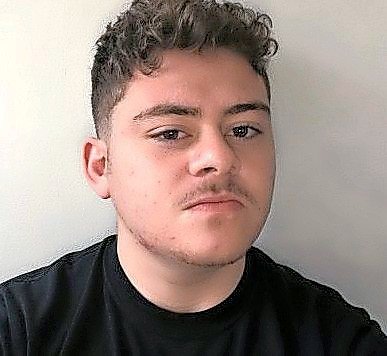US Jewish identity, 3 years after Tree of Life
Three years ago last week, on Oct. 27, we awoke to a world of our ancestors. In the breadth of Jewish history, the names Odessa, Warsaw, Kishinev, Kiev and Hebron represent the unspeakable barbarism many thought to have been resigned to a disconnected past or a faraway land.
On a rainy Shabbat morning, however, the neighborhood of Squirrel Hill found itself thrust alongside those cursed names. The Tree of Life*Or L’Simcha Synagogue — my synagogue — had been massacred; 11 of my fellow congregants murdered; and yet another generation of Jews became scarred with the reappearance of the undying hatred that has so viciously captured the lives of millions.
Three years ago, we awoke to a world too late to turn back.
Since the shooting in October 2018, Jews watched in horror six months later at the news of another synagogue shooting in Poway, Calif., as well as one at a kosher supermarket in Jersey City, Orthodox Jews have been regularly assaulted in broad daylight in New York, Los Angeles, Franceand Germany have seen outbreaks of anti-Semitic violence.
The Internet mainstreamed anti-Semitic conspiracy theories and blood libels. Israelis braved thousands of rockets from genocidal maniacs while activists across the world took to the streets demanding the Jewish people be annihilated from the river to the sea. Elected officials and so-called social justice warriors hailed as America’s future either gave it their sinister endorsement or their unforgivable silence.
We study pivotal moments like these in our people’s history and ask ourselves what the Jews did on the eve of catastrophe.
Perhaps because Jews have enjoyed unprecedented freedom in the United States, we foolishly convinced ourselves that such a catastrophe couldn’t happen here. What happened at Tree of Life proved us terribly wrong. And now American Jews are at a crossroads, confronting the very question fearful faces of generations past asked around dinner tables and synagogues: What do we do?
Essentially powerless, our ancestors did not have the privilege of achieving any realistic solution prior to Israel’s founding. They packed what they could, moved elsewhere and carried with them the seeds of the anti-Semitism they hoped to be leaving behind. As for our generation, we’re in a unique position where we can do something about it — and we aren’t doing nearly enough.
In the aftermath of the shooting, the same outpour of lovingkindness the Tree of Life congregation welcomed my family upon joining enriched our neighbors near and far. It’s because our humanity is the very lifeblood of our people. G-d instructs the Jews to be “a light unto the nations” (Isaiah 42:6), but also to “fight for your brothers, your sons, your daughters, your wives and your homes” (Nehemiah 4:14).
That lovingkindness exuded by Jewish leadership has since devolved into a dangerous passivity. Establishment Jewish leaders have failed to recognize and effectively respond to the broad range of anti-Semitism seen in government, college campuses and social media.
Tree of Life was indeed a right-wing attack in the spirit of Nazism, and virtually every facet of American public and private life has been exhausted in extinguishing that strain of hate. But our leaders, to quote Charles Jacobs and Avi Goldwasser, have “ignored the changed battlefield for as long as they could. They deliberately, out of political consideration, minimized the assaults coming from radical progressives and Islamists.”
Consider Pittsburgh’s recent Eradicate Hate Global Summit inspired by the Tree of Life shooting. In a forum supposedly dedicated to the “united and unrelenting fight against the spread of hate,” how could Jewish leaders allow anti-Semites a platform?
How could Jewish leaders claim to protect us when they invite a Jew-hating terrorism apologist from an organization that once defended a Holocaust denier? In Israel, Jewish leaders defeat the anti-Semite, no matter who he is. In America, it pains me to say, Jewish leaders simply hand him a louder microphone.
It feels as though Jewish organizations sworn to protect us are prioritizing their political interests above our security, fearing that they may lose their status among the progressive establishment that would rejoice at the sight of Israel’s destruction. We are paying the price for their fear. For it’s the “fearful Jew,” former Israeli Prime Minister Menachem Begin once said, that leads to “humiliation, persecution, exile, beating, subjugation, and finally, the gates of Auschwitz.”
“On the other hand,” Begin continued, “when the Jew woke up and rediscovered his inner courage, what was given to him? A flag, a homeland, an army, sovereignty, human dignity.”
I hope in future generations when they ask what we did with this precious Jewish inheritance of ours that the history books will say we rose to the occasion. That we honored our fallen and strengthened our children by being unapologetic, uncompromising Jews. That we elevated our homeland and not cowered behind it. That we discovered our inner courage and restored our dignity.
That we were inspired not by how Joyce Fienberg, Richard Gottfried, Rose Malinger, Jerry Rabinowitz, Cecil Rosenthal, David Rosenthal, Bernice Simon, Sylvan Simon, Daniel Stein, Melvin Wax and Irving Younger died, but rather, how they lived.
Aidan Segal is a student at the University of Pittsburgh.

 39.0°,
Fair
39.0°,
Fair 





